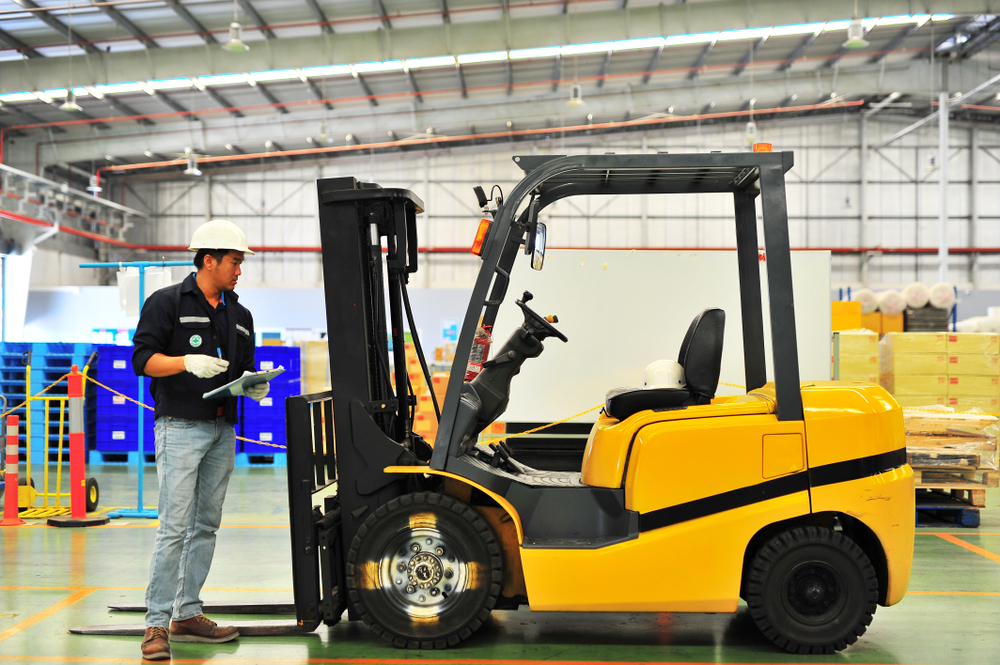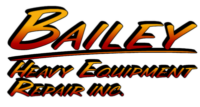Keep Your Operations Running Smooth: Specialized Forklift Care

In fast-paced industries, forklifts are essential to keeping productivity high and operations running efficiently. However, when a forklift malfunctions, it can quickly disrupt workflows and cause costly delays. Specialized forklift care, which includes routine maintenance and timely repairs, is crucial to preventing breakdowns and ensuring a safe and efficient workplace. In this blog, we’ll explore the essentials of forklift repair, hydraulic systems, battery maintenance, and tips on finding reliable “forklift repair and maintenance near me.”
The Importance of Forklift Maintenance
Regular maintenance of forklifts is an investment that pays off in multiple ways. Well-maintained forklifts operate smoothly, reduce the risk of accidents, and have a longer service life. Forklift repair and maintenance isn’t just about fixing a machine when it breaks down; it’s about preventing issues before they arise, leading to significant cost savings.
A well-maintained forklift is also more efficient, which means that it can handle loads better and faster. It reduces strain on operators and makes the overall workflow smoother. Let’s dive into some specific areas where specialized care can make a big difference.
Common Forklift Issues That Require Attention
Forklifts are robust machines designed for heavy-duty tasks, but they can still encounter various issues. Some common problems that frequently require maintenance include:
- Hydraulic system issues: Leaks, blockages, or wear in hydraulic lines can affect lifting and lowering functions.
- Battery problems: Poorly maintained batteries can lead to power loss and operational inefficiency.
- Brake issues: Worn-out brakes can lead to unsafe working conditions and reduced control.
- Tire wear and tear: Tires experience significant wear and need regular checks for cracks and bald spots.
Identifying and addressing these issues before they become serious problems is essential for maintaining forklift efficiency and longevity.
Essential Forklift Repair and Maintenance Practices
Specialized forklift repair and maintenance involve a range of practices that ensure the machine’s reliability, safety, and productivity. Here are some key areas to focus on:
1. Forklift Hydraulic Repair
Hydraulics play a central role in a forklift’s operation, enabling the vehicle to lift and lower heavy loads with precision and control. If the hydraulic system fails, your forklift’s core function is compromised, leading to potential safety hazards and operational delays.
Common Hydraulic Issues
Hydraulic issues can arise from leaking seals, cracked hoses, low hydraulic fluid levels, and worn-out valves. These can reduce the machine’s ability to lift loads or cause erratic lifting behavior. Some symptoms of hydraulic issues include unusual noises, slower lifting speeds, and visible fluid leaks.
Regular Hydraulic Maintenance
Regular checks and maintenance of the hydraulic system are essential to keeping your forklift in peak condition. Here are a few tips for forklift hydraulic repair and maintenance:
- Inspect hoses and seals: Look for any signs of wear, cracks, or leaks, especially at the seals and connection points.
- Check hydraulic fluid levels: Low fluid levels can cause system strain and eventually lead to breakdowns.
- Flush and replace hydraulic fluids: Dirt and contaminants in hydraulic fluid can lead to clogging, so replace fluids periodically.
- Examine lifting and lowering speed: Any change in speed could indicate issues with the hydraulic system.
Forklift hydraulic repair should be conducted by professionals experienced in forklift mechanics to ensure the repair process is safe and effective.
2. Forklift Battery Maintenance
A forklift battery that is not properly maintained can lose power quickly, resulting in decreased performance and even unexpected shutdowns. Battery maintenance is crucial to ensuring that the forklift has a reliable power source and operates efficiently throughout its working shift.
Extending Battery Life
Battery maintenance involves more than just recharging the battery at the end of each shift. Here are some best practices for forklift battery maintenance:
- Monitor electrolyte levels: Checking and adjusting electrolyte levels in the battery prevents overheating and extends battery life.
- Follow proper charging practices: Overcharging or undercharging can reduce a battery’s lifespan. Make sure to follow the manufacturer’s guidelines for charging.
- Clean battery terminals: Corroded terminals can affect power flow. Cleaning them regularly helps ensure efficient power delivery.
- Equalize batteries periodically: Equalizing the battery helps balance the cells, which prolongs battery life.
Forklift battery maintenance is critical to reducing downtime and enhancing productivity. Operators should be trained to recognize warning signs of battery problems, such as sluggish performance or charging issues.
3. Tire Maintenance and Replacement
Tires are another critical component that directly affects forklift stability, handling, and safety. Damaged or worn-out tires can make forklifts challenging to control, increasing the risk of accidents.
Identifying Tire Wear
Forklift tires are subjected to constant stress and often wear out faster than standard vehicle tires. Key indicators that a forklift tire needs replacement include:
- Bald spots or chunks: Missing chunks in the tire tread reduce grip and can lead to slippage.
- Excessive wear: Worn-down treads make the forklift less stable and can affect load-handling capabilities.
- Visible cracks: Cracked tires are a clear sign that the tire is weakened and needs replacement.
Tips for Tire Care
Maintaining tires includes regular inspections and rotating them to ensure even wear. Forklift tires are specialized and differ based on the type of forklift and the operational environment. For instance, solid tires are often used in indoor settings, while pneumatic tires are ideal for outdoor use. Selecting the right tire type and monitoring its wear ensures better handling and longevity.
Finding Quality Forklift Repair and Maintenance Services Near You
Having access to reliable “forklift repair and maintenance near me” is essential to address issues promptly and keep your equipment in top shape. When looking for a service provider, there are several key factors to consider:
Qualifications and Expertise
Choose a provider with certified mechanics who are skilled in forklift repair and familiar with the specific make and model of your equipment. Specialized experience in forklift repair is crucial, especially for complex repairs like hydraulic systems and battery replacements.
Range of Services
A quality forklift repair service should offer a range of solutions, from routine maintenance to emergency repairs. They should be able to address hydraulic repairs, battery servicing, tire replacements, and more. Some providers even offer maintenance plans that allow you to budget for regular services.
Quick Response Time
Forklifts are essential to daily operations, so any downtime can affect productivity. Look for repair providers that can respond quickly and provide on-site service when needed. Many companies offer mobile repair services, allowing technicians to come to you instead of requiring you to transport the forklift.
Benefits of Specialized Forklift Care
Forklift care and maintenance have tangible benefits that extend beyond simply keeping the machine running. Here are some advantages of regular maintenance and repair:
Increased Efficiency and Productivity
A well-maintained forklift performs better, handles loads with ease, and operates smoothly. This efficiency translates directly to increased productivity, as operators can complete tasks faster and more effectively without having to deal with machine malfunctions.
Extended Equipment Lifespan
Investing in routine forklift care helps prevent minor issues from escalating into major problems that require expensive repairs or replacements. Regular maintenance significantly extends the lifespan of your equipment, maximizing your initial investment.
Enhanced Safety
Faulty forklifts can pose a safety risk to operators and nearby workers. Regular maintenance ensures that brakes, hydraulics, and other critical systems function correctly, creating a safer workplace. Equipment that meets safety standards reduces the risk of accidents, protecting both employees and company assets.
Cost Savings in the Long Run
Regular forklift repair and maintenance reduce the likelihood of unexpected breakdowns, which can be costly in terms of both repair fees and lost productivity. Preventative care lowers overall operational costs and minimizes the need for emergency repairs.
Best Practices for Forklift Operators
While specialized maintenance is essential, operators play a crucial role in maintaining forklift health. Training operators on proper use and encouraging them to perform daily checks can prevent minor issues from turning into major repairs. Here are some best practices for forklift operators:
- Inspect daily: Conduct a quick inspection of key components like the tires, battery, and hydraulic system before each shift.
- Report issues immediately: If an operator notices a problem, it should be reported right away to avoid further damage.
- Follow load guidelines: Overloading a forklift can strain its components and lead to premature wear.
Conclusion
Specialized forklift care is essential to ensure that these critical machines operate efficiently, safely, and without interruptions. By focusing on key areas like hydraulic repair, battery maintenance, and tire care, companies can reduce downtime and extend the life of their forklifts. Finding reliable “forklift repair and maintenance near me” can make all the difference in keeping operations smooth and productive.
Prioritizing forklift repair and maintenance is an investment in both productivity and safety, keeping your operations running smoothly and helping you avoid costly repairs. Don’t wait for issues to arise; embrace proactive care and protect your bottom line.
